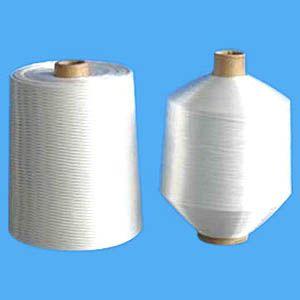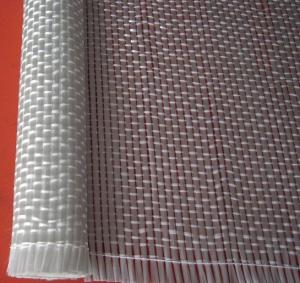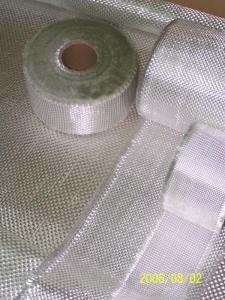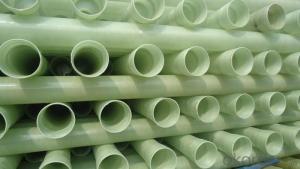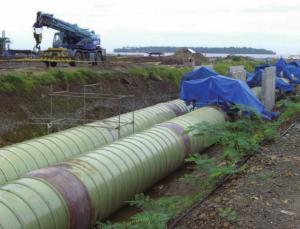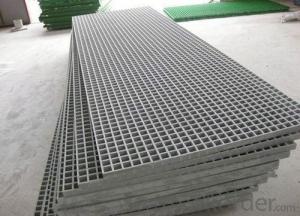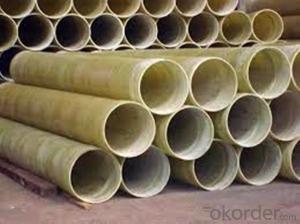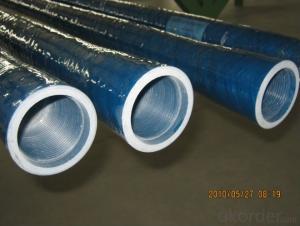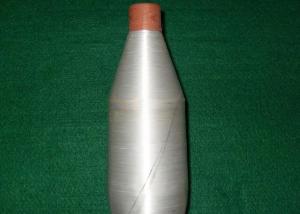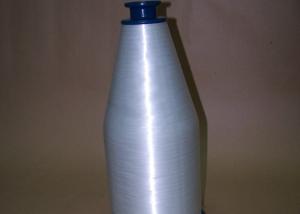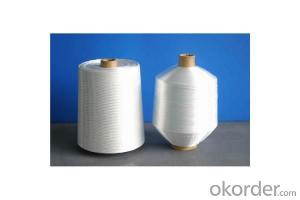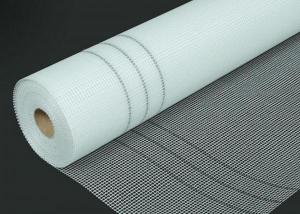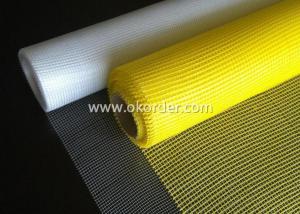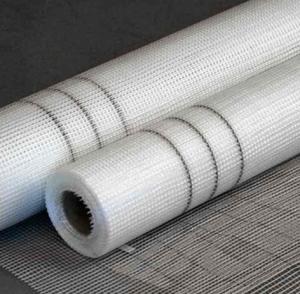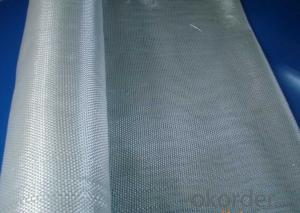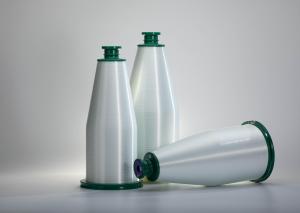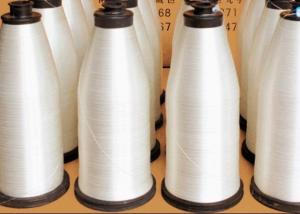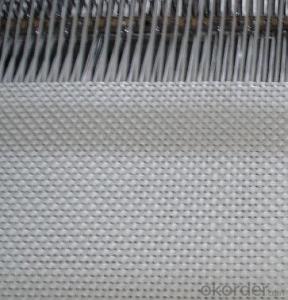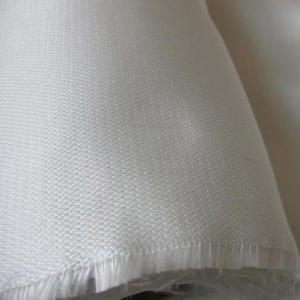Fiberglass Yarn
- Loading Port:
- China Main Port
- Payment Terms:
- TT or L/C
- Min Order Qty:
- 1Ton kg
- Supply Capability:
- 100000Kg/Month kg/month
OKorder Service Pledge
OKorder Financial Service
You Might Also Like
Packaging & Delivery of Fiberglass Yarn
Specifications of Fiberglass Yarn
Glass fiber filament yarn
corrosion resistant, heat resistance
little moisture absorption
low thermal conductivity
Fiberglass yarn is made from 4-9um fiberglass filameters which are the gathered and twisted into one finished yarn. It is widely used in productions of fabric as finished well as electrical wrapping materials, engineering materials, textured yarn, woven electronic grade fabric and so on.
Packaging & Delivery of of Fiberglass Yarn
Packaging Detail: carton and pallet
Delivery Detail: within 15days after order placed
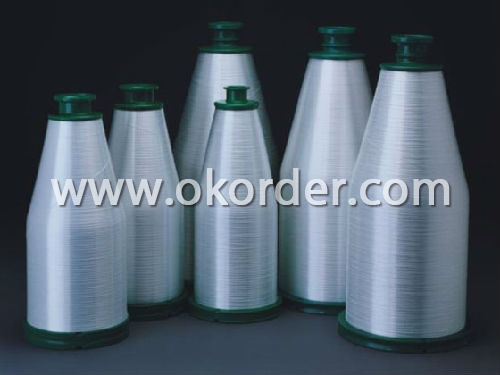
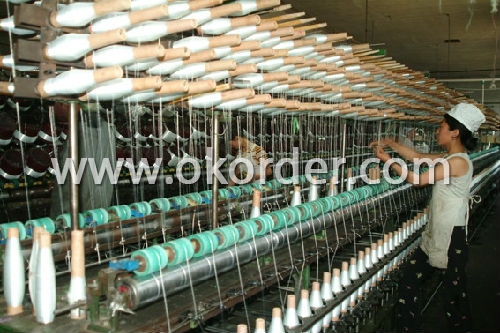
- Q:Can fiberglass yarn be used in gaskets and seals?
- Yes, fiberglass yarn can be used in gaskets and seals. Fiberglass yarn is a strong and durable material that has excellent resistance to heat, chemicals, and abrasion. These properties make it an ideal choice for applications where gaskets and seals are required to withstand high temperatures, corrosive fluids, and harsh environments. Fiberglass yarn can be woven into fabric or used as a reinforcing material in rubber compounds to enhance the strength and flexibility of gaskets and seals. Additionally, fiberglass yarn can also be impregnated with various resins or coatings to further enhance its sealing properties. Overall, fiberglass yarn is a versatile material that can effectively be used in the manufacturing of gaskets and seals for a wide range of industrial applications.
- Q:How does the resistance to impact of fiberglass yarn compare to other materials?
- Fiberglass yarn has excellent resistance to impact when compared to many other materials. Its unique composition, which consists of fine fibers of glass, provides it with superior strength and durability. The glass fibers in fiberglass yarn are known for their exceptional tensile strength, meaning they can withstand significant force without breaking or deforming. This resistance to impact makes fiberglass yarn an ideal choice for various applications where impact resistance is crucial, such as in the construction industry for reinforcing concrete, as well as in the manufacturing of sports equipment, automotive parts, and aerospace components. Compared to other materials like cotton, polyester, or nylon, fiberglass yarn offers significantly higher impact resistance, ensuring that the products made from it can withstand heavy loads and harsh conditions without compromising their structural integrity.
- Q:How does fiberglass yarn perform in thermal insulation?
- Fiberglass yarn performs exceptionally well in thermal insulation. Its high thermal resistance properties make it an excellent choice for insulating various applications such as buildings, industrial equipment, and appliances. The yarn's ability to trap air within its structure helps in reducing heat transfer and maintaining temperature stability. Additionally, fiberglass yarn is resistant to heat, fire, and chemicals, making it a durable and effective solution for thermal insulation.
- Q:Can fiberglass yarn be woven into fabrics?
- Indeed, it is possible to weave fabrics with fiberglass yarn. The process involves spinning molten glass into delicate fibers, followed by intertwining them to produce a resilient and adaptable yarn. Through the utilization of diverse weaving methods, this specific yarn can be fashioned into fiberglass fabrics. These fabrics are esteemed for their exceptional robustness, longevity, and ability to withstand high temperatures, enabling them to serve various purposes, including insulation, protective attire, and reinforcement within composite materials.
- Q:Can fiberglass yarn be used in construction applications?
- Yes, fiberglass yarn can be used in construction applications. It is commonly used for reinforcing concrete, creating strong and durable structures. It is also used for insulation, as it is fire-resistant and provides thermal protection. Additionally, fiberglass yarn can be used for manufacturing lightweight and corrosion-resistant components in construction projects.
- Q:Is fiberglass yarn resistant to rot?
- Yes, fiberglass yarn is resistant to rot. Fiberglass is made from a combination of glass fibers and resin, which makes it highly durable and resistant to moisture, rot, and decay. This characteristic of fiberglass yarn makes it an excellent choice for applications where exposure to moisture or harsh environmental conditions is expected. Additionally, the non-porous nature of fiberglass yarn prevents the growth of mold, mildew, and bacteria, further enhancing its resistance to rot.
- Q:Is fiberglass yarn resistant to acids or alkalis?
- Fiberglass yarn is known for its excellent resistance to acids and alkalis. The inorganic nature of fiberglass, composed mainly of silica, provides it with strong resistance to chemical attack. Acids such as sulfuric acid, hydrochloric acid, and nitric acid have limited impact on fiberglass yarn, making it a reliable material for applications in industries dealing with corrosive substances. Similarly, fiberglass yarn also exhibits resistance to alkalis such as sodium hydroxide and potassium hydroxide. This resistance to acids and alkalis makes fiberglass yarn suitable for use in various industries, including chemical processing, water treatment, and electrical insulation.
- Q:How does fiberglass yarn perform in terms of durability?
- Known for its exceptional durability, fiberglass yarn is highly resistant to wear and tear, making it an excellent choice for applications that require long-lasting performance. The inherent strength and stability of fiberglass yarn allow it to withstand various environmental conditions, including extreme temperatures, moisture, chemicals, and UV radiation. Moreover, fiberglass yarn exhibits excellent dimensional stability, meaning it retains its shape and size even under significant stress. This exceptional durability renders fiberglass yarn suitable for a wide range of industries, including construction, automotive, aerospace, and marine, where high-strength materials are essential. In summary, fiberglass yarn provides outstanding durability, making it a reliable option for applications that demand enduring performance and resistance to damage.
- Q:Can fiberglass yarn withstand high temperatures?
- Yes, fiberglass yarn can withstand high temperatures. It is known for its excellent heat resistance properties, allowing it to withstand temperatures up to 1000 degrees Celsius without melting or degrading.
- Q:Is fiberglass yarn suitable for making sports helmets?
- Yes, fiberglass yarn is suitable for making sports helmets.
1. Manufacturer Overview |
|
|---|---|
| Location | Chongqing, China |
| Year Established | 1971 |
| Annual Output Value | Above US$ 50 Million |
| Main Markets | North America, Eastern Europe, Southeast Asia, Mid East, Eastern Asia |
| Company Certifications | ISO9001 |
2. Manufacturer Certificates |
|
|---|---|
| a) Certification Name | |
| Range | |
| Reference | |
| Validity Period | |
3. Manufacturer Capability |
|
|---|---|
| a)Trade Capacity | |
| Nearest Port | Chongqing |
| Export Percentage | 40%-50% |
| No.of Employees in Trade Department | 21-50 People |
| Language Spoken: | English |
| b)Factory Information | |
| Factory Size: | Above 2000,000 square meters |
| No. of Production Lines | Above 4 |
| Contract Manufacturing | |
| Product Price Range | Average |
Send your message to us
Fiberglass Yarn
- Loading Port:
- China Main Port
- Payment Terms:
- TT or L/C
- Min Order Qty:
- 1Ton kg
- Supply Capability:
- 100000Kg/Month kg/month
OKorder Service Pledge
OKorder Financial Service
Similar products
New products
Hot products
Hot Searches
Related keywords
